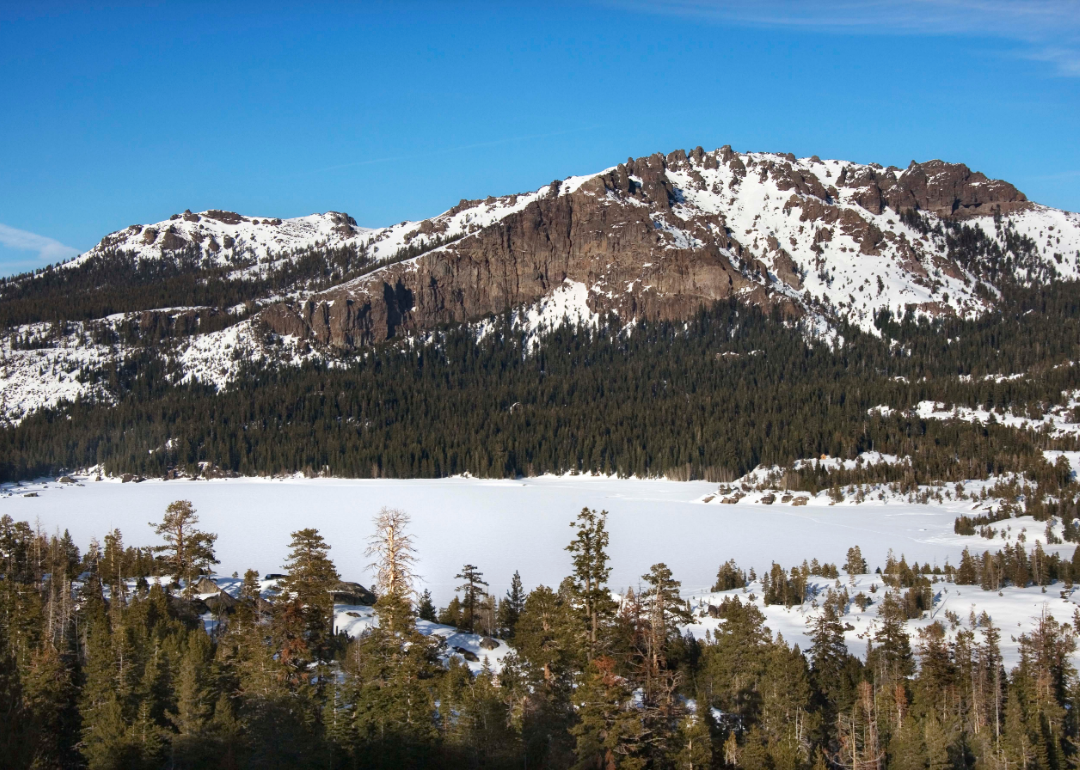
Nevada is the #10 state with the fewest registered hunters
With a 3 million year record of it, it's safe to say hunting is one of the oldest forms of human activity. Stacker compiled a complete list of the states with the most registered hunters using 2020 data from the U.S. Fish and Wildlife Service. States are ranked by percent of residents with hunting licenses. Population data is from the Census as of 2018.
There are 15.2 million hunting license holders in the United States. Over the centuries, hunting has largely evolved from necessity to sport—although many hunters in the U.S. do process hunted animals for food. As hunting gained popularity as a leisure activity, ecosystems suffered and led to various regulations in order to help preserve and conserve wildlife resources. In the United States, each state has set dates for hunting seasons, thresholds for how many tags or wild game stamps are allowed, and specific areas that are off-limits to hunting in order to help preserve habitats and animal populations.
In the past several decades, the number of people with hunting licenses in the United States has been on a sharp decline. This can be attributed to a few factors, namely the rise in the urbanization of the United States, the development of farmland, a lack of free time among hunters, and limited access to hunting land, writes the Pennsylvania Game Commission. Licenses dropped from a peak of roughly 17 million in the 1980s to 15 million in 2019, according to The Seattle Times.
Nevada by the numbers
- Percent of residents with paid hunting licenses: 2.3%
- Total paid hunting license holders: 69,681
- Total hunting license, tags, permits and stamps: 143,282
- Gross cost of all hunting licenses: $7,629,934
The hunting population in Nevada isn't super robust (with just 2.3% of the population owning licenses), but it is one of the more controversial. According to The Sierra Nevada Ally, Nevada is one of 32 states to allow an individual to legally hunt a bear. It is one of only 14 states to allow specially trained dogs to assist in bear hunting, which is one of the most hotly contested laws in the state.
The drop-off in revenue from hunting licenses is starting to pose a problem for conservation groups. Thanks to the 1937 Pittman-Robertson Act, an 11% excise tax was placed on the sale of firearms, which was then used for conservation. Not only that, but the profits from hunting licenses themselves also go directly to funding for conservation.
There was a slight uptick in the number of hunters earlier in 2020 as some U.S. meat processors stopped operating because of COVID-19. People also had a lot more time on their hands, according to Reuters. Indiana, for example, saw a 28% jump in turkey license sales during the first week of the season. Whether these results will be sustained remains to be seen.
So which states are holding steady with hunting traditions? Take a look to see which states made the top and bottom of the list.
States with the most registered hunters
#1. South Dakota: 24.1% of residents with paid hunting licenses
#2. Wyoming: 22.7% of residents with paid hunting licenses
#3. Montana: 21.1% of residents with paid hunting licenses
States with the least registered hunters
#1. California: 0.7% of residents with paid hunting licenses
#2. Rhode Island: 0.7% of residents with paid hunting licenses
#3. Hawaii: 0.7% of residents with paid hunting licenses



